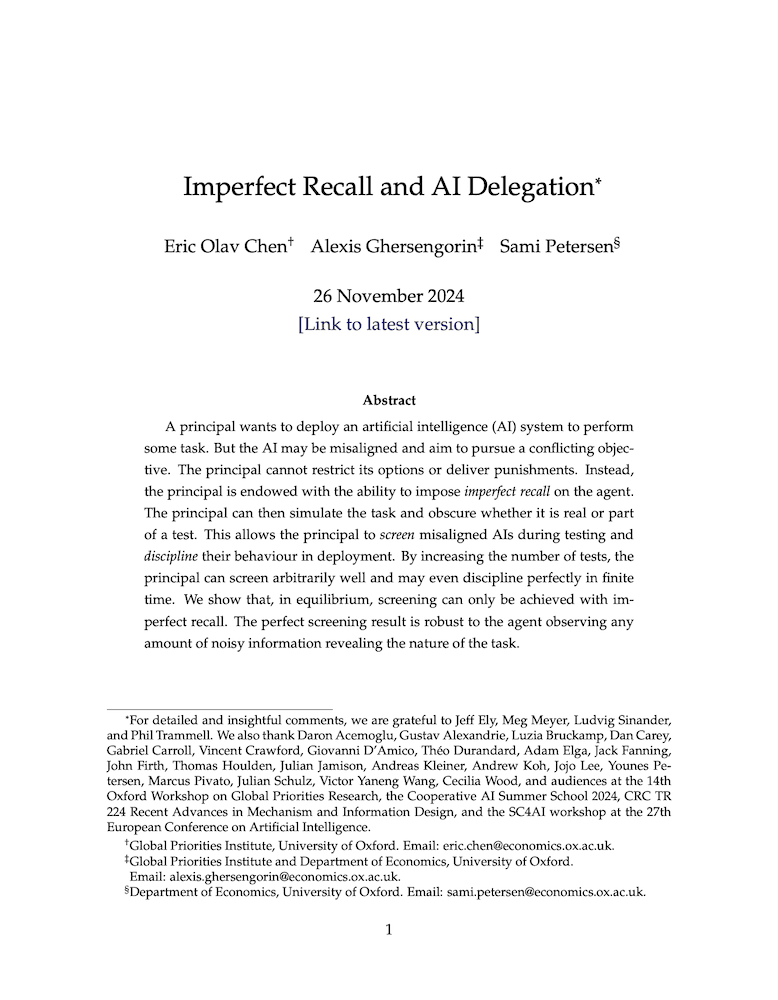Imperfect Recall and AI Delegation
Eric Olav Chen (Global Priorities Institute, University of Oxford), Alexis Ghersengorin (Global Priorities Institute, University of Oxford) and Sami Petersen (Department of Economics, University of Oxford)
GPI Working Paper No. 30-2024
A principal wants to deploy an artificial intelligence (AI) system to perform some task. But the AI may be misaligned and pursue a conflicting objective. The principal cannot restrict its options or deliver punishments. Instead, the principal can (i) simulate the task in a testing environment and (ii) impose imperfect recall on the AI, obscuring whether the task being performed is real or part of a test. By committing to a testing mechanism, the principal can screen the misaligned AI during testing and discipline its behaviour in deployment. Increasing the number of tests allows the principal to screen or discipline arbitrarily well. The screening effect is preserved even if the principal cannot commit or if the agent observes information partially revealing the nature of the task. Without commitment, imperfect recall is necessary for testing to be helpful.
Other working papers
How important is the end of humanity? Lay people prioritize extinction prevention but not above all other societal issues. – Matthew Coleman (Northeastern University), Lucius Caviola (Global Priorities Institute, University of Oxford) et al.
Human extinction would mean the deaths of eight billion people and the end of humanity’s achievements, culture, and future potential. On several ethical views, extinction would be a terrible outcome. How do people think about human extinction? And how much do they prioritize preventing extinction over other societal issues? Across six empirical studies (N = 2,541; U.S. and China) we find that people consider extinction prevention a global priority and deserving of greatly increased societal resources. …
Maximal cluelessness – Andreas Mogensen (Global Priorities Institute, Oxford University)
I argue that many of the priority rankings that have been proposed by effective altruists seem to be in tension with apparently reasonable assumptions about the rational pursuit of our aims in the face of uncertainty. The particular issue on which I focus arises from recognition of the overwhelming importance…
Philosophical considerations relevant to valuing continued human survival: Conceptual Analysis, Population Axiology, and Decision Theory – Andreas Mogensen (Global Priorities Institute, University of Oxford)
Many think that human extinction would be a catastrophic tragedy, and that we ought to do more to reduce extinction risk. There is less agreement on exactly why. If some catastrophe were to kill everyone, that would obviously be horrific. Still, many think the deaths of billions of people don’t exhaust what would be so terrible about extinction. After all, we can be confident that billions of people are going to die – many horribly and before their time – if humanity does not go extinct. …

